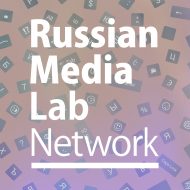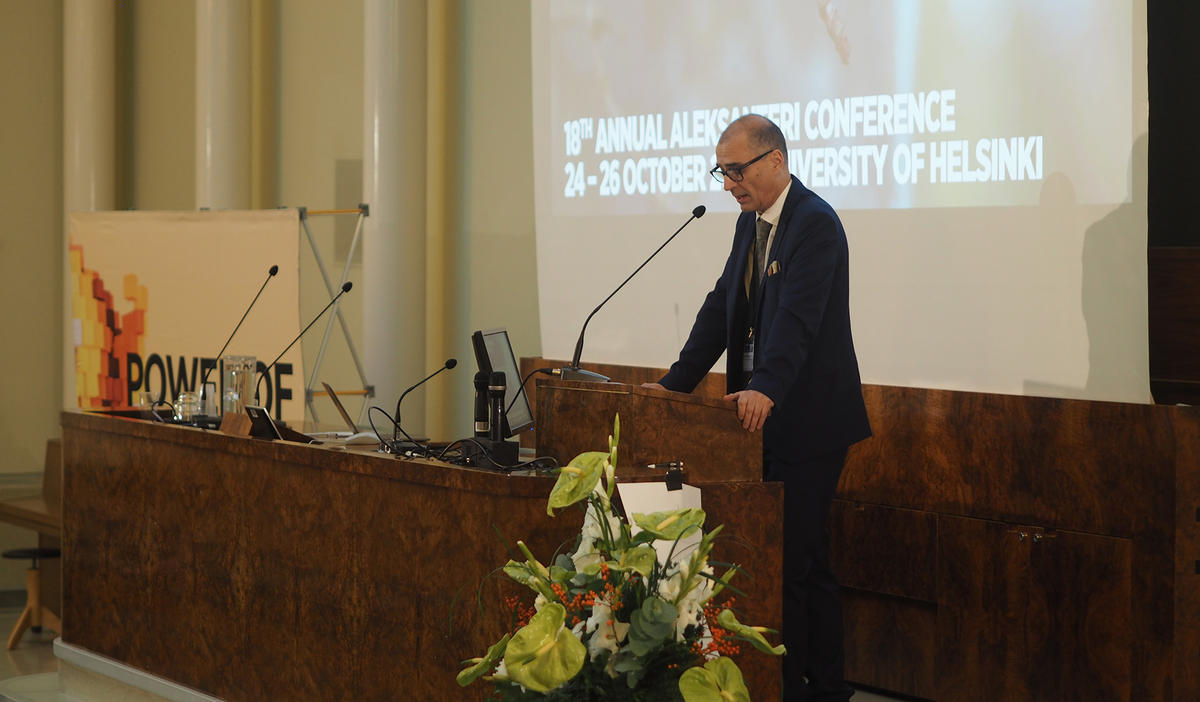By Janne Suutarinen
The 18th Aleksanteri Conference “Liberation – Freedom – Democracy? 1918–1968–2018” again brought together hundreds of scholars and enthusiasts of Russian and Eastern-European studies. In the conference, Russian Media Lab hosted one roundtable, one plenary session and six panels. The project’s manager and Aleksanteri Institute’s director, professor Markku Kangaspuro was pleased with Russian Media Lab’s part in the program.
Was the Russian Media Lab stream at the conference successful?
“Definitely successful: the project got more visibility and all of our panels attracted good amount of researchers.”
In your perspective, what were the stream’s main contributions to the conference?
“The project really raised up our research topics for the whole conference – not only in the panels but also in the plenary session. And we can’t forget Mariëlle’s contribution as the coordinator of the whole conference.”
Did there come up new ideas for the project?
“One clear issue is that Russian Media Lab as a research stream will continue also after the current project is coming to it’s end next summer. There are both academic and social demand for media studies in order to understand the development of Russian society.
Dr. Katrin Voltmer’s presentation (1:07:25 onwards in the video) on democracy and different ways to construct it offered an interesting way to approach also the sphere of media. There were also discussions on the role of local media and publicity and their role in the media space. It became clear that we can not leave it out of the picture when speaking about freedom of speech and democracy.”
At the opening roundtable
Russian Media Lab’s roundtable “Researching Russian Media – Challenges and Future Perspectives” opened the project’s conference stream. The roundtable was chaired by Katja Lehtisaari, and other participants were Jussi Lassila, Saara Ratilainen, Mariëlle Wijermars and Olga Dovbysh.
The roundtable started with everyone bringing up their views on how to develop the project. There were, for example, wishes to broaden the methodological scope of already wide-reaching interdisciplinary project. Collaboration with more different disciplines would be beneficial for developing the field of Russian media studies. In the discussion, the underrepresentation of local and regional media in the studies was acknowledged, as well as the scarcity of voices of Russian scholars and comparative media studies of post-Soviet area.
Dovbysh noted that the focus of Russian media studies has tended to be political studies -inclined, which has lifted the issues of, for instance, Putin and Kremlin to the spotlight. In Dovbysh’ view, this could be avoided by directing more attention on the values and norms of media suppliers and customers.
A central question was brought up: what are the main challenges in researching Russian media?
Wijermars told that the interest toward Russian media research is on the rise. “The challenge is to formulate the research so that it combines the societal impact and develops the field at the same time.”
Lassila noted that there exaggeration of certain issues should be avoided. “We see state control also in places where it doesn’t exist”, Lassila said. Today it would be essential to study how authoritative states are adapting to the internet world.
Dovbysh brought up the lack of corpus of studies in Russian media. Moreover, there are lots of research on Russian media in Russian language, but the material is not so well accessed in the Western academic world.
The discussion continued with a question: How do you see the near future of Russian media studies?
“The focus of Russian media studies should be on journalism per se, and the online/offline division should be left behind”, Wijermars suggested.
Ratilainen highlighted creating more collaboration cross-border and focusing more on audience studies. “There is massive, passive audience that follows what they are being fed”, Ratilainen said. Understanding of audiences would then need to be more dynamic.
“TV will manipulate if people are willing to receive: you hear what you want to hear”, added Lassila.
At the disclosing Q&A, project’s director Markku Kangaspuro talked about Katrin Voltmer’s presentation, which had inspired also many of the other project members.
“Voltmer’s concept of constructive democracy is interesting. If we agree with Voltmer’s model, we could take a different view on the sights of development of Russian media”, Kangaspuro pondered.
If democracy can be seen as constructed and interpreted, could the same be applied to media?
Russian Media Lab says thank you to all the participants and the audience of the project’s stream at Aleksanteri Conference!

